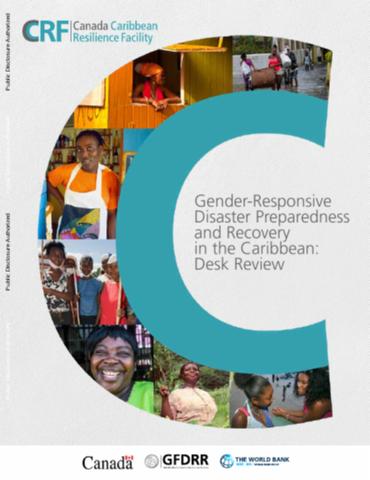Caribbean countries share a number of characteristics which make them vulnerable to external threats, including small populations, limited economies of scale, and undiversified economies. The COVID-19 pandemic through 2020 has added to the severity of consequences for these countries’ disaster preparedness and recovery efforts, which can significantly complicate challenges caused by natural or man-made disasters, and disrupt health services and health infrastructure as well as make social distancing more difficult in relief shelters and among people displaced by natural hazards. Strong evidence from around the world has demonstrated that disaster impacts are more devastating for vulnerable populations and disadvantaged groups that comprise women, the poor, the elderly, youth, people with disabilities, and various minority groups. Such evidence underscores the importance of differential gender analysis for an effective disaster planning and recovery, while considering the specific needs of vulnerable populations and disadvantaged groups. This desk review recognizes the importance of evidence based approaches to disaster risk management (DRM), and aims at evaluating gender-responsive disaster preparedness and recovery efforts in the nine CFR Caribbean countries: Antigua and Barbuda, Belize, Dominica, Grenada, Guyana, Jamaica, Saint Lucia, Saint Vincent and the Grenadines, and Suriname. The desk review’s key objectives include: (i) an assessment of gender gaps and other inequalities, particularly in the context of disaster impacts; (ii) an evaluation of the extent of the integration of gender considerations into disaster and climate change policies at the national and sector levels; and (iii) the development of recommendations for capacity building and technical assistance in gender responsive disaster preparedness and recovery for each of the nine countries.
Gender-Responsive Disaster Preparedness and Recovery in the Caribbean: Desk Review
March 1, 2021 Read this publication

